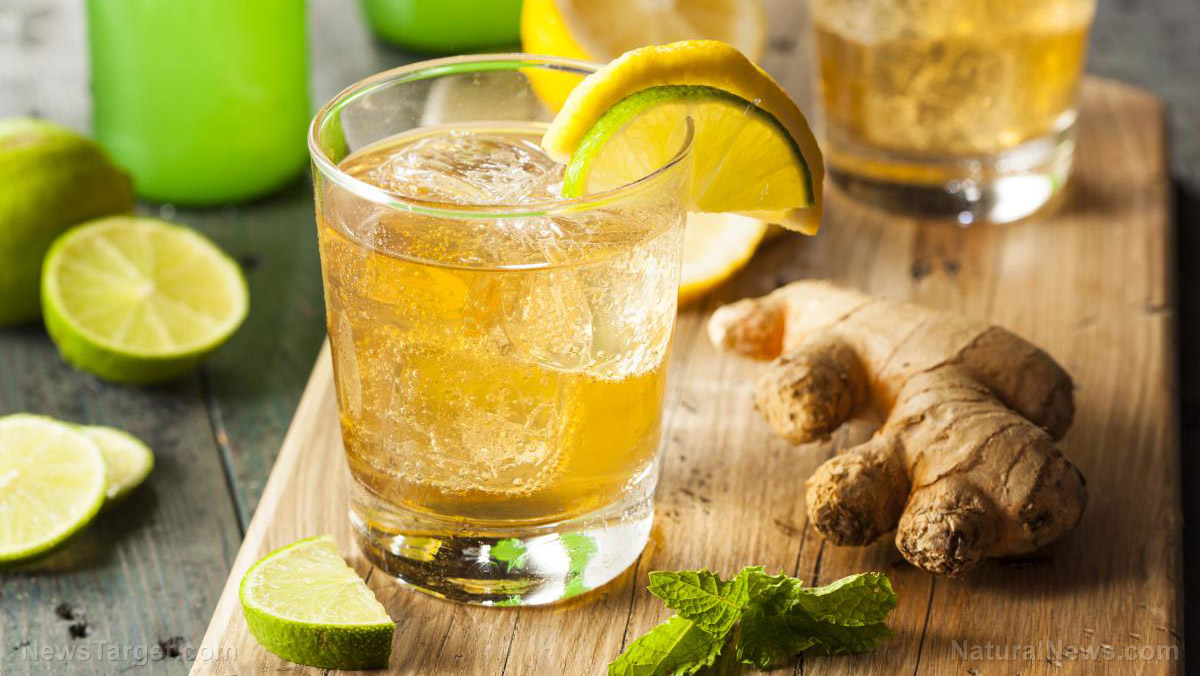
Advertisement
Foods and drinks that help detoxify the body are becoming increasingly popular because of how poor the average person’s diet is. Fast food and processed foods loaded with saturated fat, added sugar and synthetic ingredients can easily overwhelm your body’s filtering organs, particularly your liver.
If toxins from those foods overwhelm your liver, you’ll experience various health problems, such as fatigue, nausea and diarrhea. In severe cases, your liver may even fail suddenly. This is known as acute liver failure, and it can cause abdominal swelling, confusion and jaundice — the yellowing of the skin and eyeballs.
Luckily, certain foods can help cleanse your liver and ensure it works properly. One such food is garlic. Any cook worth their salt knows that garlic is the ultimate seasoning. Versatile, easy to use and utterly delicious, you’d be hard-pressed to find a dish that wouldn’t benefit from a clove or two of garlic.
Garlic is a super detoxifier
Garlic has been used as a natural detoxifier for thousands of years. It doesn’t directly flush out toxins from your body. Instead, it helps increase the natural production of glutathione, an antioxidant that’s essential for healthy liver function and detoxification. It works by eliminating toxins in your liver, as well as in your kidneys.
Glutathione also helps eliminate heavy metals and environmental toxins from your body. Additionally, glutathione can protect your liver from oxidative stress, which is caused by harmful free radicals. Increased production of free radicals in the liver has been implicated in many liver diseases.
As you age, your body’s ability to produce glutathione naturally decreases. On top of that, poor lifestyle choices, such as frequently eating processed foods, smoking and drinking too much alcoholic beverages, can reduce glutathione levels in the body. One way you can increase your glutathione levels is by adding garlic to your diet.
Garlic also contains a trace mineral called selenium. Like glutathione, it also works as an antioxidant that protects your liver from toxins. Selenium is also important for other important biological functions, including immune response and thyroid hormone production.
Garlic is best enjoyed raw so that you can fully enjoy its detoxifying benefit. You should also chop or crush your garlic cloves before eating or cooking them to release their beneficial compounds.
Other benefits of garlic
Garlic is a rich source of other nutrients that support overall health, such as manganese and vitamin C. Studies show that garlic helps elevate your body’s level of the compound hydrogen sulfide. Hydrogen sulfide is both an antioxidant and a blood vessel relaxant that can help reduce your risk of stroke and heart disease.
Another perk of garlic is that it may help prevent unnecessary blood clotting. Powerful compounds in garlic (and onions) can decrease the “stickiness” of platelets in the blood. This also has the effect of reducing your risk of atherosclerosis, or the hardening and narrowing of your arteries. Atherosclerosis increases your risk for blood clots that can cause heart attacks and stroke.
Studies have also shown that garlic can help fight viral infections like the common cold and the flu because of a powerful compound called allicin. Allicin, which is released when garlic is crushed or chopped, can also protect against high cholesterol and diabetes.
How to prepare and cook with garlic
Garlic, a member of the onion family, is one of the most indispensable ingredients in the kitchen. It’s a bit fiery and pungent, as well as crunchy when raw. As it cooks, it gets softer and its flavor becomes more mellow.
Garlic is available year-round, so there isn’t a distinct season when it’s at its best. When shopping for garlic, opt for bulbs that are firm and plump with tight cloves. Avoid bulbs that look dry and have skin that easily falls off since those are likely old. If you cut open a clove and notice a green stem inside, this indicates that your garlic is sprouting and already past its prime.
Garlic cloves need to be peeled before being sliced or chopped. There are two easy ways to do this. The first involves placing the clove on a chopping board, placing the flat side of your knife against it and quickly pushing down with your other hand. This will crush the garlic itself and loosen its skin so that it’s easy to peel off.
The second method involves putting cloves in a mason jar. Secure the lid, then shake the jar as hard as you can. After 20 or so seconds, the cloves should have pretty much peeled themselves for you.
When chopping garlic, you’ll want to do so quickly. Dawdling means the garlic could oxidize and become bitter. Keep the slices the same thickness so that they all cook evenly.
You can add garlic to dressings, salsas and sauces or roast whole bulbs to serve with roast meat dishes. You can also add garlic to stir-fries, casseroles and soups.
Sources:
Advertisements







